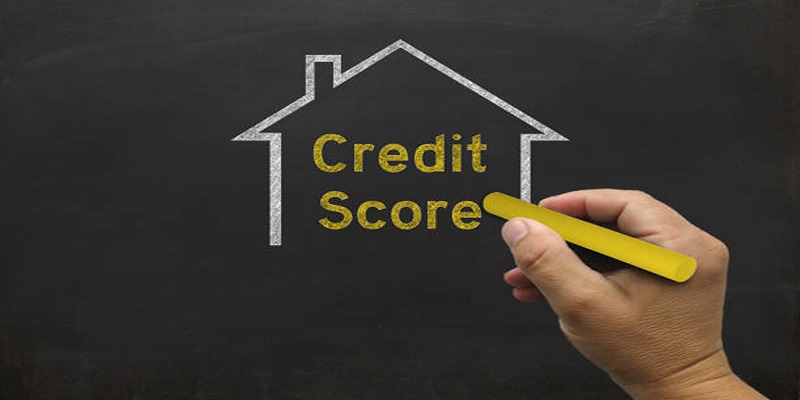Purchasing a home is an important money move, but it may feel too complicated. The credit score makes a big difference when applying for a mortgage. For those buying a home for the first time or those who have returned to the market, knowing the score required helps you decide what to do. It explains what credit scores are which factors lenders look at and offers ways to raise your score to help you get the house you want.
Why Your Credit Score Matters When Buying a House

Your credit score is more than just a number. It’s a snapshot of your creditworthiness, or how likely you are to repay borrowed money. Mortgage lenders use this score as a key factor when deciding whether to approve you for a loan and what interest rate to offer.
When your credit score is higher, you can usually get better terms on loans such as smaller interest fees and lower deposits needed. Having a low credit score might make it harder to get a good deal or qualify for a mortgage at all.
When calculating your credit score, these factors play a role:
- Payment history: Consistent on-time payments build your score.
- Credit utilization: Using less than 30% of your available credit is ideal.
- Credit history length: Longer credit histories signal reliability.
- Credit mix: A variety of credit types (e.g., credit cards, car loans) can enhance your score.
- Recent credit inquiries: Too many hard inquiries, especially over a short period, can lower your score.
What Credit Score Do You Need to Buy a House?
The specific credit score you need depends on the type of mortgage you’re seeking. Here’s a breakdown of the requirements for common loan types:
Conventional Loans
Conventional loans are not insured by the federal government, making them a popular choice for borrowers with solid credit and a steady income. Generally, you’ll need a credit score of at least 620 to qualify. However, higher scores (think 740 and above) are often rewarded with lower interest rates.
FHA Loans
If you’re a first-time homebuyer, an FHA loan might be an attractive option. These loans are backed by the Federal Housing Administration and designed to make homeownership more accessible. The credit score requirement is relatively lenient:
- 580 or above: Qualifies you for a 3.5% down payment.
- 500-579: Requires a 10% down payment.
Keep in mind that certain lenders may have stricter standards, even for FHA loans.
VA Loans
VA loans are specifically available to active-duty military members, veterans, and eligible spouses. These loans, backed by the Department of Veterans Affairs, typically have no official minimum credit score requirement. That said, most lenders prefer a score of 620 or higher.
USDA Loans
Considering buying a home in a rural or suburban area? A USDA loan could be a great option. Backed by the U.S. Department of Agriculture, these loans are intended to encourage homeownership in less populated regions. While the recommended minimum credit score is typically 640, some lenders may offer flexibility.
Jumbo Loans
If you’re purchasing a high-value home that exceeds conventional loan limits, you’ll need a jumbo loan. These loans come with stricter credit requirements due to the greater financial risk for lenders. To qualify, you’ll typically need a credit score of 700 or higher.
The Impact of Your Credit Score on Mortgage Interest Rates
Your credit score doesn’t just determine whether you qualify for a loan; it also affects how much you’ll pay in interest over time. Even a small difference in your interest rate can translate to tens of thousands of dollars over the life of a mortgage.
Here’s an example:
- A credit score of 760+: You could secure a lower interest rate, such as 6%.
- A credit score of 620: You might face a higher interest rate of 7.5% or more.
On a $300,000 loan, the difference between those rates could amount to more than $90,000 in extra interest over 30 years. That’s why improving your score before applying for a mortgage is worth the effort.
How to Improve Your Credit Score Before Buying a Home

If your credit score needs improvement, don’t stress. You can take steps to raise it before beginning your house hunt.
1. Check Your Credit Report for Errors
Start by reviewing your credit report from the three major credit bureaus (Experian, Equifax, and TransUnion). Look for inaccuracies, such as incorrect balances or accounts that don’t belong to you. Dispute any errors to ensure your score reflects your true financial picture.
2. Pay Down Existing Debt
Lowering your credit card balances can improve your credit utilization ratio. Aim to use less than 30% of your available credit limit to maximize your score.
3. Make Payments on Time
Your payment history carries significant weight in your credit score calculation. Set up automatic payments or reminders to ensure you never miss a due date.
4. Avoid Opening New Credit Lines
While it might be tempting to open a new credit card or take out another loan, these actions can lead to hard inquiries that temporarily lower your score. Additionally, new accounts can reduce the average age of your credit history.
5. Keep Old Accounts Open
Even if you don’t use an older credit card, keeping the account open can help maintain a longer credit history, which positively impacts your score.
6. Build Credit Strategically
If your credit history is limited, consider using a secured credit card or becoming an authorized user on someone else’s account to build your credit over time.
Tips for First-Time Homebuyers
Besides focusing on your credit score, there are other steps you can take to position yourself for a successful home purchase:
- Save for a larger down payment, as this can make you a more attractive borrower.
- Get pre-approved for a mortgage to understand your budget and show sellers you’re a serious buyer.
- Work with a reputable real estate agent who understands the market and can guide you through the process.
Conclusion
Your credit score plays a crucial role in determining your path to homeownership, but it’s only one piece of the puzzle. By understanding the requirements for different mortgage types and taking steps to improve your credit, you can set yourself up for success. If you're ready to get started, check your credit score, review your finances, and connect with mortgage professionals who can guide you through the process. Homeownership may be closer than you think.












